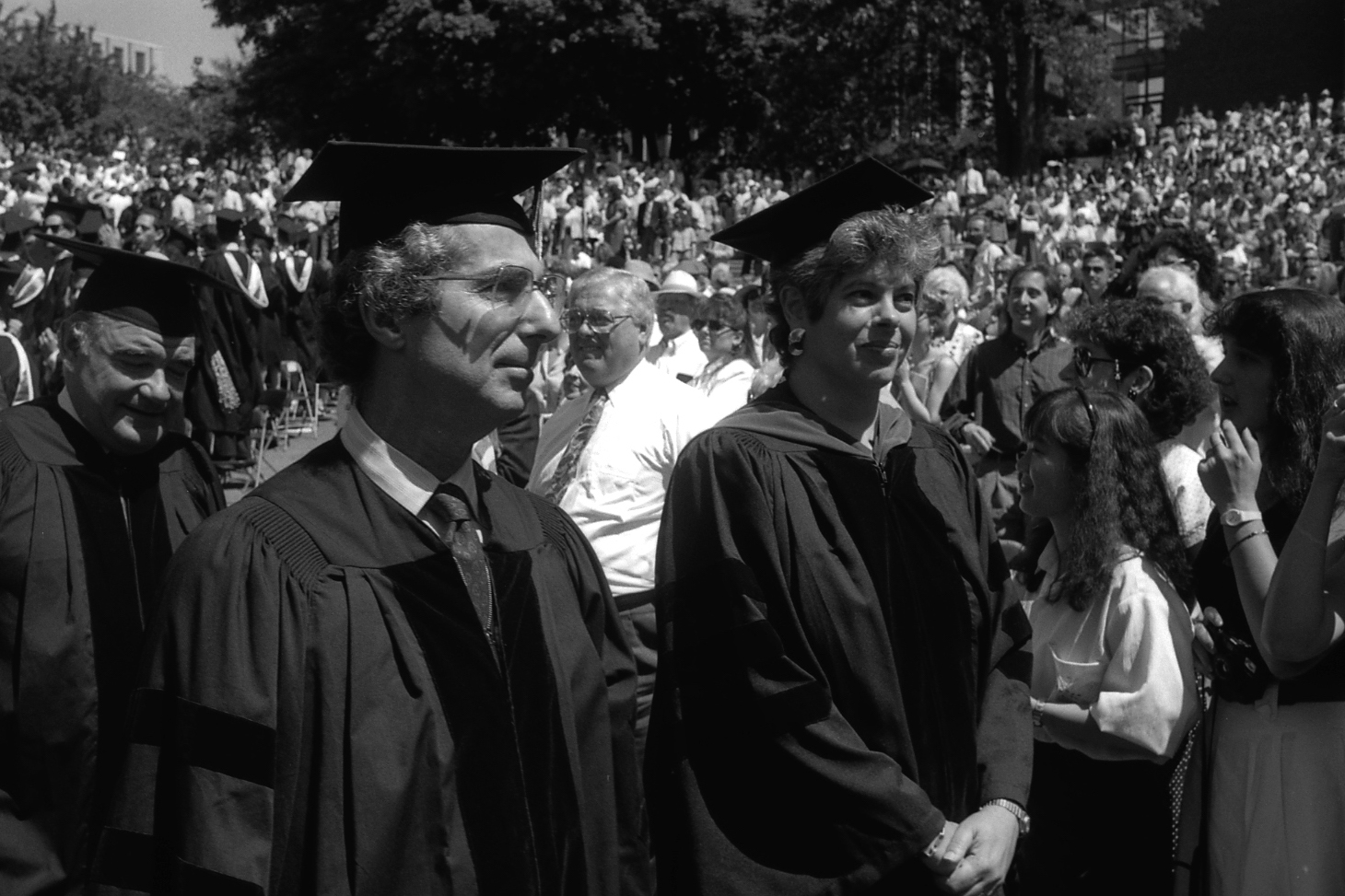'The Shakespeare of our American age': Sylvia Barack Fishman on Philip Roth
 Photo/Courtesy of the Robert D. Farber University Archives & Special Collections Department, Brandeis University
Photo/Courtesy of the Robert D. Farber University Archives & Special Collections Department, Brandeis UniversityPhilip Roth with professor Joyce Antler during Brandeis University's 40th Commencement Exercises in 1991. Roth was awarded an honorary degree.
The following remembrance was written by Sylvia Barack Fishman, Joseph and Esther Foster Professor in Judaic Studies at Brandeis and a scholar on Jewish literature. For more on Roth's legacy, read this piece by professor John Plotz published in Public Books.
Philip Roth was the poet of American Jewish assimilatory hunger in the 1950s & 1960s. “Goodbye, Columbus” and "Portnoy’s Complaint" satirized many aspects of middle class American Jewish life, and painted unflattering pictures of American Jewish mothers and daughters. That made some American Jews angry. But I was one of the many other American Jews who recognized the satirical pictures Roth was painting, and found those pictures accurate, on-target, and very funny.
Roth never wrote the same novel twice. He went on to create powerful analytical portrayals of the great diversity of Jewish life in the United States, England, and Israel in his 1986 masterpiece, "The Counterlife." Roth skewered anti-Semites and antisemitism in "Operation Shylock" (1993) and later in "The Plot Against America" (2004). Roth exposed the hollowness of Jewish assimilation into white bread American norms in "American Pastoral" (1997), which won the Pulitzer Prize for Fiction. He showed how narratives similar to the Jewish experience could be seen in the African American experience in "The Human Stain" (2000). During his last years he even redeemed Jewish mothers and daughters in his 31st book, his 2010 novel about polio epidemics, "Nemesis."
Throughout his writing career, Roth voraciously read Jewish history, classical Jewish texts, Jewish literature, thought, and philosophy. He wove all these materials into his novels in dazzling, thoughtful ways. The fact is that Roth was deeply engaged by the Jewish experience, and he wrote about it over and over again, but each time in a different way and with a different focus.
Reactions to Roth in the American Jewish community were split. There were those, particularly among traditionalists and some rabbis, who never read past "Portnoy’s Complaint" and despised Philip Roth, calling him a “self-hating Jew.” Some of those people were very surprised with the strongly protective and pro-Jewish tone in "The Plot Against America," a book which was widely read by a broad spectrum of American Jews, and loved by many, including many traditionalists and many rabbis.
Other American Jews — myself included — followed Roth carefully and read everything he wrote. I cherish his brilliant writing. Roth was the Shakespeare of our American age, and he was also the best sociologist of American Jews. I am very sad that he is no longer among us, and very grateful for his prodigious gifts.
Categories: General





